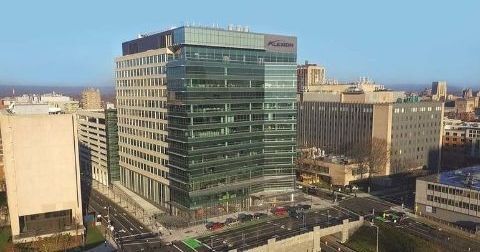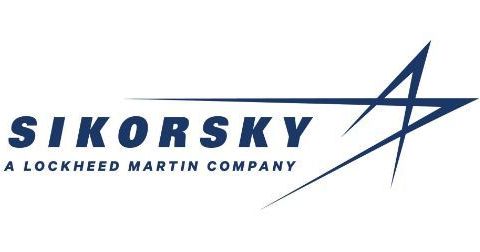Alexion to expand New Haven footprint

8 Apr 2022
News
Alexion to expand New Haven footprint
PHOTO | CONTRIBUTEDAlexion Pharmaceuticals' research facility at 100 College St. in New Haven.
By Michelle Tuccitto Sullo
Alexion, AstraZeneca’s Rare Disease group, indicated Thursday it plans to expand its presence in New Haven with space at the new bioscience tower currently under construction at 101 College St.
The company is headquartered in Boston, but has a New Haven presence, with roughly 500 employees working at its research facility at the existing tower next door, at 100 College St.
Alexion indicated it expects to occupy the new space by the end of 2023. The expansion is expected to grow the company’s research capabilities, and will double its lab floor space, according to an announcement.
Alexion also indicated it is currently recruiting to fill 50 open positions in New Haven, with more than 50% of those roles in research and development.
The company also anticipates more hiring with the addition of the new space and continued growth of its research and development efforts in the Elm City.
The 101 College St. space is expected to be LEED certified – Platinum level, in alignment with AstraZeneca’s Ambition Zero Carbon program, which aims to reduce greenhouse gas emissions from global operations by 98% by 2026, the company said.
Developer Carter Winstanley broke ground on the 101 College St. tower project last year, and at the time projected it would take two years to build. The new 10 story tower at 101 College St. will have roughly 500,000 square feet of laboratory, research and meeting space.
The new tower has already attracted other future tenants, such as Yale University and bioscience company Arvinas. BioLabs of Cambridge, which manages co-working space for life science startups, will run a new Yale-backed incubator in the building.
UK-based AstraZeneca finalized its $39 billion acquisition of Alexion in July 2021.
Alexion has developed treatments for a range of disorders and diseases, such as lysosomal acid lipase deficiency, neurofibromatosis, paroxysmal nocturnal hemoglobinuria, hypophosphatasia, and atypical hemolytic uremic syndrome. It has five medicines approved currently, including Kanuma, Koselugo, Soliris, Strensiq and Ultomiris, according to its website.
More Topics

Agreement Between Sikorsky and State of Connecticut to Keep Headquarters in the State Through 2042
Mar 28 2022

.png)









